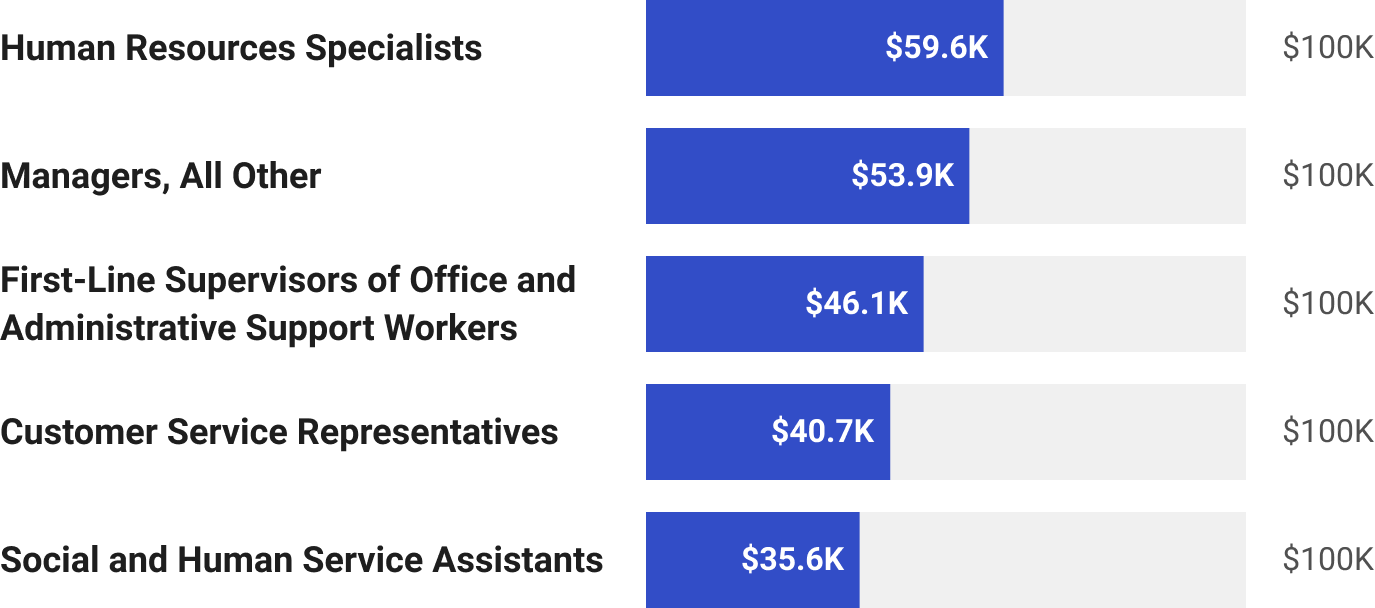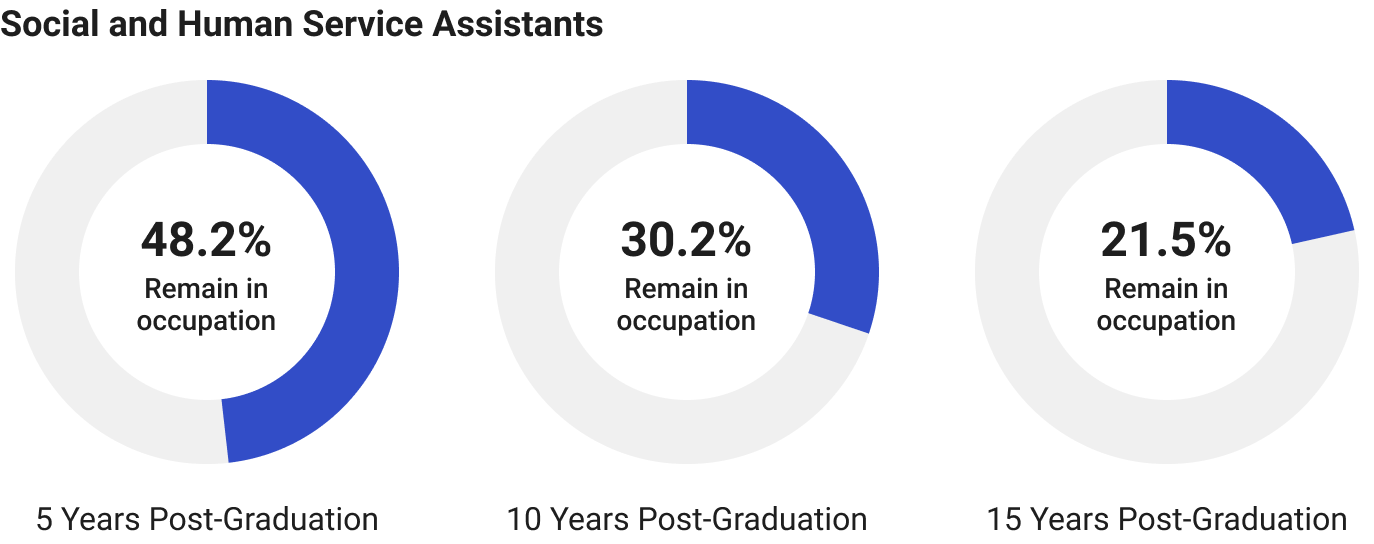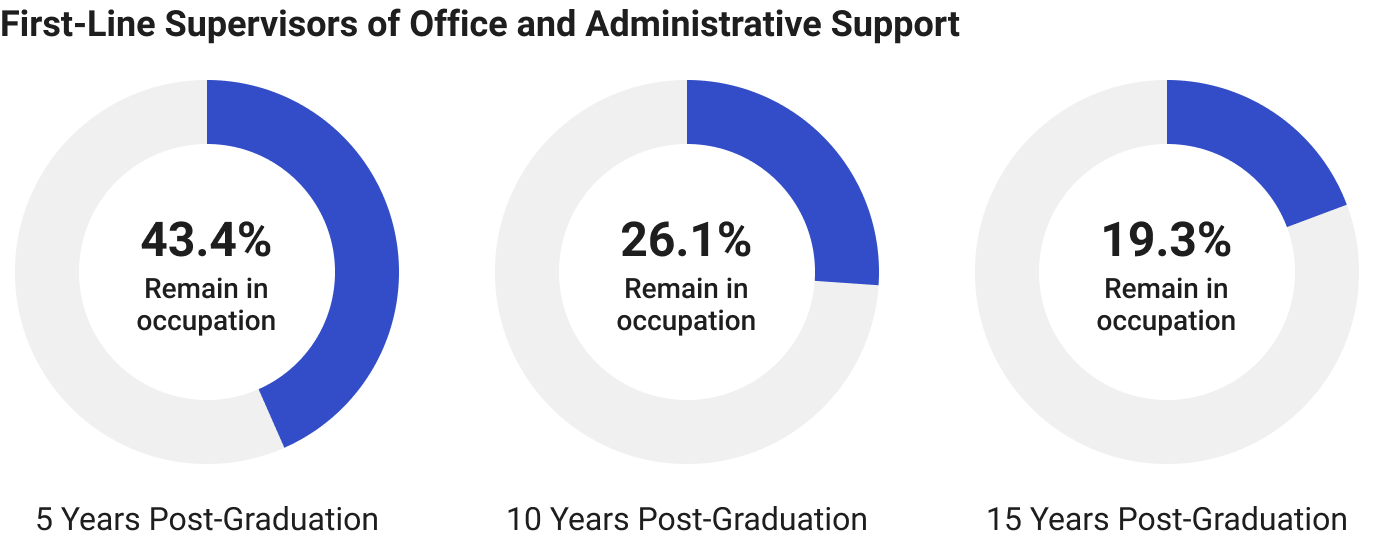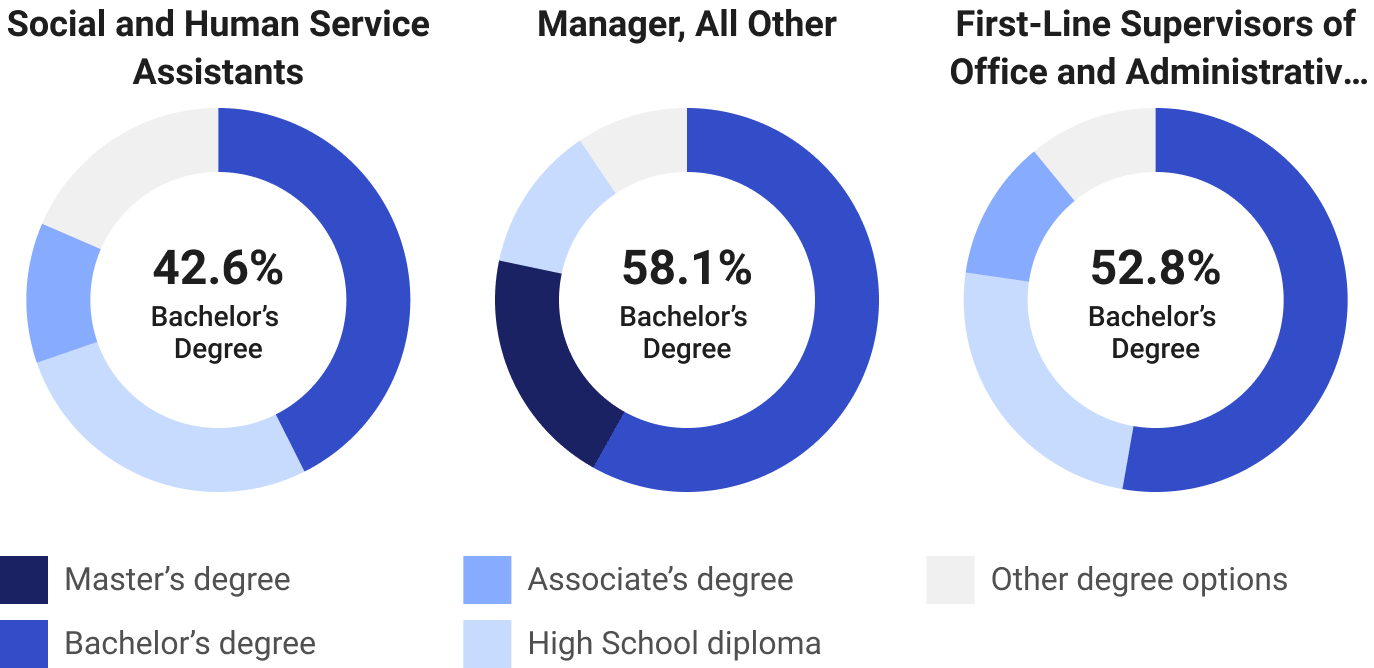Major: Psychology
During the covid-19 pandemic, many reconnected with abandoned hobbies or developed new ones─bread making sound familiar to anyone? But while many passed the time baking bread or sharing TikTok videos of failed sourdough starters, others struggled.
And a bevy of issues quickly inundated millions during the pandemic, resulting in a surge of mental health and substance abuse issues. In 2020, the American Psychological Association surveyed adults in the U.S. Two-thirds of the survey respondents reported an increase in pandemic-related stress. Pursuing a degree in psychology prepares you to help people cope with the harmful effects of the pandemic. But a degree in this field offers careers far beyond healthcare.
What does a student majoring in Psychology study?
Examples of psychology occur in everyday situations: A recent widower refuses to engage in activities they once enjoyed. A patient with a brain injury starts to act aggressively toward others. A company makes significant internal changes that result in high employee dissatisfaction and turnover. There’s a long line outside a retail shop and the promotional sign that says, “Limited Stock.”
These examples showcase the numerous ways in which psychology plays a role in our lives. Understanding the human mind and behavior—the way people think, feel, and act—underscores what one studies in the field of psychology.
As a psychology major, you’ll take courses such as these:
- Biological Psychology
- Behavioral Neuroscience
- Cognitive Psychology
- Developmental Psychology
- Human Development
- Research Methodology
- Statistics
What can I do with a Psychology degree?
The opportunities are vast for careers in psychology:
A clinical psychologist can help with depressive signs of grief. Biopsychologists research the impact of brain damage, and neuropsychologists provide comprehensive, tailored treatments for brain injury patients.
But the work one can do in psychology isn’t limited to clinical settings alone. An industrial and organizational psychologist analyzes an organization’s issues and proposes solutions. And what about that long line of customers queuing outside a retail store? That’s the contribution of a consumer psychologist applying the scarcity principle: FOMO. Sound familiar?
Here are some careers opportunities to explore:
- Health and Safety Engineers
- Social and Human Service Assistants
- Child, Family, and School Social Workers
- Social Science Research Assistants
- Training and Development Managers
Top occupations for Psychology degree graduates, 3 years post-graduation:
Median income for common occupations that Psychology degrees obtain, 3 years post-graduation:
Role progressions for Psychology degree graduates:
Specializations for a Psychology Major:
- Addiction Psychology
- Cultural Psychology
- Environmental Psychology
- Psychology of Aging
- Human Services Psychology
Top Skills Employers Seek, based on occupation:
What are the requirements for a Psychology degree?
Besides meeting the core requirements each semester, set your sights on completing an internship. Also, with the guidance of a faculty adviser, conduct research and submit the findings in a bachelor thesis. You’ll gain practical experience while strengthening your analytical skills.
FAQ
What does a student majoring in Psychology study?
Examples of psychology occur in everyday situations: A recent widower refuses to engage in activities they once enjoyed. A patient with a brain injury starts to act aggressively toward others. A company makes significant internal changes that result in high employee dissatisfaction and turnover. There’s a long line outside a retail shop and the promotional sign that says, “Limited Stock.”
These examples showcase the numerous ways in which psychology plays a role in our lives. Understanding the human mind and behavior—the way people think, feel, and act—underscores what one studies in the field of psychology.
As a psychology major, you’ll take courses such as these:
- Biological Psychology
- Behavioral Neuroscience
- Cognitive Psychology
- Developmental Psychology
- Human Development
- Research Methodology
- Statistics
What can I do with a Psychology degree?
The opportunities are vast for careers in psychology:
A clinical psychologist can help with depressive signs of grief. Biopsychologists research the impact of brain damage, and neuropsychologists provide comprehensive, tailored treatments for brain injury patients.
But the work one can do in psychology isn’t limited to clinical settings alone. An industrial and organizational psychologist analyzes an organization’s issues and proposes solutions. And what about that long line of customers queuing outside a retail store? That’s the contribution of a consumer psychologist applying the scarcity principle: FOMO. Sound familiar?
Here are some careers opportunities to explore:
What specializations do Psychology majors have?
- Addiction Psychology
- Cultural Psychology
- Environmental Psychology
- Psychology of Aging
- Human Services Psychology
What are the requirements for a Psychology degree?
Besides meeting the core requirements each semester, set your sights on completing an internship. Also, with the guidance of a faculty adviser, conduct research and submit the findings in a bachelor thesis. You’ll gain practical experience while strengthening your analytical skills.








